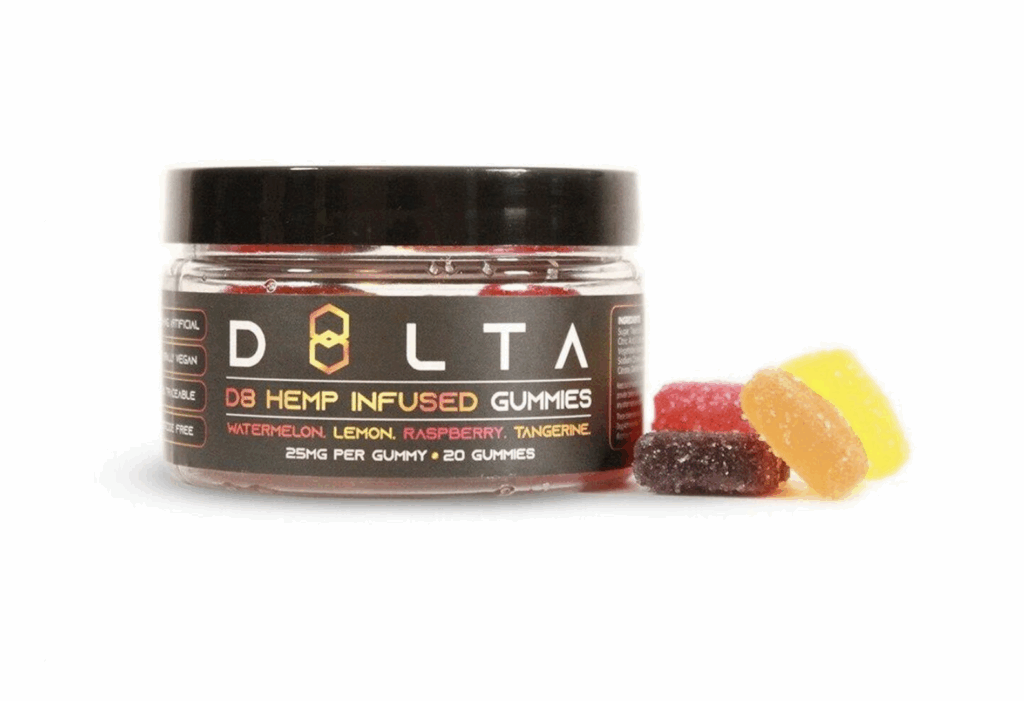Over the past few years, the cannabis industry has expanded far beyond traditional THC products. Delta 8 and Delta 10 THC gummies are among the most popular cannabinoid-infused edibles available today. While they’re both derived from hemp and offer a legal alternative to Delta 9 THC in many regions, they affect the body in notably different ways. This article explores how Delta 10 gummies affect the body compared to Delta 8, helping you decide which option may be right for your needs—whether you’re seeking energy, relaxation, or clarity.
Understanding Delta 8 and Delta 10
Before diving into their effects on the body, it’s essential to understand what Delta 8 and Delta 10 THC are. Both are minor cannabinoids found in trace amounts in the cannabis plant. Chemically, they are isomers of Delta 9 THC—the compound responsible for the psychoactive “high” most people associate with cannabis. However, Delta 8 and Delta 10 produce less intense effects and are often synthesized from CBD derived from hemp, making them federally legal under the 2018 Farm Bill (although some states have placed restrictions).
How Delta 8 Affects the Body
Delta 8 is often described as offering a more mellow, calming experience. Its effects are typically associated with:
- Mild euphoria: Users often report feeling a sense of well-being and happiness.
- Body relaxation: Delta 8 has a reputation for delivering a soothing body high, which can help with stress and tension.
- Appetite stimulation: Like Delta 9, Delta 8 can trigger hunger.
- Sleep support: Many users take Delta 8 gummies in the evening to aid in sleep or reduce nighttime anxiety.
Delta 8 interacts with the body’s endocannabinoid system, primarily binding to CB1 receptors in the brain and nervous system. This leads to its psychoactive effects, although they are significantly milder than Delta 9. If you’re looking for an introduction to THC-based products without the intensity of a full high, Delta 8 might be a suitable starting point.
How Delta 10 Affects the Body
Delta 10, by contrast, is generally known for producing more energizing and uplifting effects. Consumers often describe it as a “sativa-like” experience, with benefits that include:
- Increased alertness and focus: Delta 10 may help improve mental clarity and productivity.
- Mood elevation: Many users experience a light, cheerful buzz without feeling overwhelmed.
- Creativity boost: Delta 10 can be ideal for daytime use or activities that require mental engagement.
- Less body sedation: Unlike Delta 8, Delta 10 typically doesn’t cause couch-lock or drowsiness.
Delta 10 also interacts with CB1 and CB2 receptors but with less binding affinity than Delta 8. This may be why its psychoactive effects are even milder, allowing for a smoother experience without heavy sedation. If you’re looking for something that supports your daytime routine, the best Delta 10 gummies can offer a discreet and effective solution.
Key Differences in Body Effects
| Feature | Delta 8 Gummies | Delta 10 Gummies |
| Psychoactive strength | Mild | Very mild |
| Body effects | Relaxing, sedating | Energizing, uplifting |
| Best time of use | Evening/night | Morning/daytime |
| Cognitive impact | Slight mental fog | Enhanced alertness |
| Social use | Good for winding down | Good for socializing or working |
For those prone to anxiety or paranoia with Delta 9, both Delta 8 and Delta 10 provide gentler alternatives. However, because of its calming nature, Delta 8 is often preferred by people dealing with stress, while Delta 10 is better suited for users who want to stay active and mentally clear.
How to Choose Between the Two
Your choice between Delta 8 and Delta 10 gummies depends on your lifestyle and desired outcome. Ask yourself:
- Do you want to relax or recharge? Delta 8 is better for relaxing evenings; Delta 10 supports productivity.
- Do you need help sleeping or staying alert? Delta 8 is great for winding down, while Delta 10 is ideal for a daytime lift.
- Do you have experience with THC? Beginners might find the lighter effects of Delta 10 easier to manage.
- Do you need to avoid feeling “high”? Delta 10 is less psychoactive than Delta 8, which may be preferable for cautious users.
When selecting products, be sure to look for third-party lab-tested options to verify potency and purity. Choosing the best Delta 10 gummies ensures you’re getting a safe, high-quality product without unwanted additives or misleading labels.
Side Effects and Safety
Though generally considered safe, both Delta 8 and Delta 10 can cause side effects, especially when taken in high doses. These include:
- Dry mouth
- Red eyes
- Fatigue (more common with Delta 8)
- Anxiety (rare, but possible with Delta 10 if overused)
To minimize side effects, start with a low dose—usually 5 to 10 mg—and wait 1 to 2 hours to evaluate how your body responds. Not all bodies metabolize cannabinoids the same way, so always listen to yours.
Final Thoughts
Both Delta 8 and Delta 10 gummies offer unique benefits depending on how you want to feel. Delta 8 leans toward relaxation, pain relief, and restful sleep, while Delta 10 provides an energizing mental buzz that’s ideal for productivity and mood enhancement.
If you’re aiming to add a legal THC alternative to your wellness or recreational routine, starting with the best Delta 10 gummies could offer a balanced experience—especially if you want mental clarity without the mental fog. Meanwhile, Delta 8 gummies may be better for winding down at the end of a long day.
As always, make sure to buy from reputable brands that test their products thoroughly. Whether you’re curious about trying THC for the first time or exploring alternatives to stronger edibles, both options offer a flexible, approachable path to the benefits of cannabinoids.

